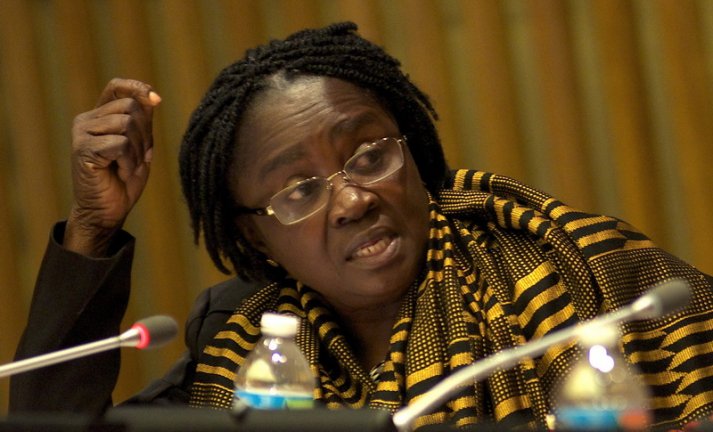
The Minister for Education, Professor Naana Jane Opoku-Agyemang, has urged United Nations (UN) Agencies working in Ghana, to endeavour to know the priority needs of Ministries, Departments and Agencies (MDAs) to enable them provide resources that will meet those needs.
According to her it is not wrong to give books to schools but if the books are not part of the priority needs of those schools who would have appreciated having a playground, a bore hole or a polytank to harvest rain water, then the distribution of those books would have been considered wrong or misplaced.
She explained further that priorities are made with a certain objective or goal in mind and it is the expectation of the beneficiary school to achieve that objective or goal.
Prof. Naana Opoku-Agyemang said this when the Country Director of the United Nations Children and Education Fund ((UNICEF) in Ghana, Susan Ngongi, paid a courtesy call on her in her office, Tuesday.
She noted that the UN Agencies should try to explain to their stakeholders what they actually are in the country to do and that will make it possible for the MDAs to work more closely with them to achieve the desired goals, pledging her ministry’s commitment to so.
Touching on the School Feeding Programme, Prof. Naana Opoku-Agyemang observed that she was concerned about the nutritional value of the food, the sources of the foodstuffs, status of the programme as well as challenges and pledged her resolve to collaborate with the Ministry of Gender, Children and Social Protection, to as quickly as possible, address those issues.
She told her host that it would be appropriate for her outfit and other UN Agencies in the education sector, to provide schools with basic first aid boxes to take care of minor injuries of pupils whilst they are in school as well as clean environment for them to learn and play.
In her remarks, the UNICEF Country Director collaborated all the issues raised by the Minister and said her outfit was a humanitarian and development agency working globally for the rights of every child, which begin with safe shelter, nutrition, protection from disaster and conflict and traverse the life cycle: prenatal healthy births, water and sanitation, health care and education.
She, however, lamented that many government institutions do not know how to use it to enable UNICEF to offer the necessary help.
Contributing to the Minister’s concern on the School Feeding Programme, Madam Susan Ngongi, said there should be guidelines on what the school children should be fed on.
In other words, she noted, the menu should be strictly local farm produce such as banana, groundnuts, yam, plantain, beans, rice, maize and millet among others.



